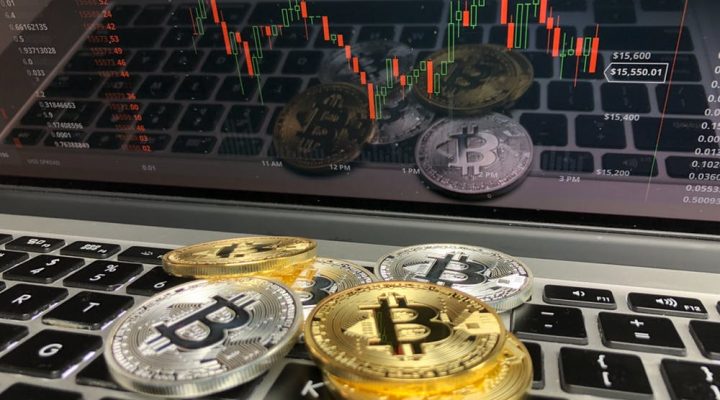Last autumn an unassuming coder named Peter Saddington walked into an Atlanta car dealership. About 20 minutes later that same unassuming coder drove out with a $200,000 matte white Lamborghini Huracan with a racing exhaust. Rich tech types are no stranger to American soil, but what caught the dealer’s eye was how Saddington paid for his new toy. He traded just 45 bitcoins for the cash in front of the stunned salesman. Safe to say the salesman then took to the internet to proclaim what he had just seen. It went viral. Saddington eventually revealed that back in 2011 he purchased his first 1000 Bitcoins for the grand price of $2.52 per coin. By the time he bought his new car, each coin was worth just shy of $20,000.
Saddington’s story isn’t unique. Anyone looking at financial news will have noticed the meteoric rise of Cryptocurrencies in 2017. On January 2 last yer, one Bitcoin was worth $1025. By December 17 it was over $19,000.
Other cryptocurrencies rode the wave. Ethereum, worth just $8 at the start of 2017, was pushing $1500 by December. Litecoin started 2017 at $3 and rose to $359 by December. At its height last year the online currency market was valued at around $700 billion dollars. That almost as much as Apple.
In 2018, however, there seems to be a backlash. Bitcoin’s value has dropped dramatically, leading some to speculate the market was all froth. It is hovering at around $8000. This is no accident. On the first sign of a Bitcoin fall, established institutions and financial commentators seized on it as a bursting bubble.
Cryptocurrencies are like ponzi schemes, World Bank chief says https://t.co/0SL3WSHl0b pic.twitter.com/l69PrRhYxn
— Bloomberg (@business) February 8, 2018
Warren Buffet, founder of Berkshire Hathaway and investment guru, told CNBC in January: “I can say almost with certainty that cryptocurrencies will come to a bad end.” He added that he would never invest in Bitcoin. Others have joined the chorus. Janet Yellen, the recently retired chair of the US Federal Reserve, said cryptocurrencies were a “highly speculative asset” and “not a stable source of value”. Steven Strongin, Head of Global Investment Research at Goldman Sachs released a report earlier this month predicting most cryptocurrencies would fall to zero during 2018.
There are also calls for politics to intervene in the burgeoning market. At the Davos Global Economic Forum, Theresa May called for world leaders to look “very seriously” at the criminal element of the cryptocurrency market. Vietnam and China have already banned the currencies. Most recently last week, Lloyds Banking Group banned their credit card users from purchasing Bitcoin, citing concerns over its loss of value.
Crypto traders think the banks are afraid of what they can’t control. Marc Warne, CEO of Bittylicious, a crypto trading platform, told City News: “They do hate cryptocurrency companies. I can’t get a bank account and neither can anyone else. They say they’re doing it for the sake of consumers, but that’s rubbish. For instance they still allow people to gamble on credit cards which is hardly responsible.”
UK banks have started to shun Crypto entrepreneurs. Elia Yusuf, head of over-the-counter trading at Bitstocks, a crypto investment firm, says it’s been difficult to open a bank account.
“Banks are withholding bank accounts from us”, he told City News, “we have been forced to move our banking to Gibraltar and Poland. If you went to a UK bank and told them what you do, you’d be laughed out of the room. I think it is partly to do with banks setting up their own Crypto trading desks. They were late to the market so now they are trying to shut out the early birds…
“I think they’re also afraid of what they can’t control. If things like Bitcoin go mainstream, the need for a middleman, or banks, in financial transactions will reduce.”
Elia believes this is a central reason why banks are so afraid. Banks make profit through charging fees on financial transactions, even for holding money. As cryptocurrencies are decentralised, there are no fees. Cryptocurrencies allow for direct peer to peer trading. Cryptocurrencies may allow people to circumvent financial institutions in the same way that peer to peer trading platforms allowed people to circumvent the music industry a decade before. He also thinks it’s about control.
“Right now the Bank of England sets interest rates. With cryptocurrencies, no economist gets to decide how much supply of money there is. They’re struggling to get their heads round it and I think that’s why they’re afraid.”
Elia, however, believes the cryptocurrency market doesn’t pose an existential threat to banks.
“There is still a place for banks, even if Bitcoin and others go mainstream. We don’t want to replace financial institutions, but we want to revolutionise the way finance works.”

